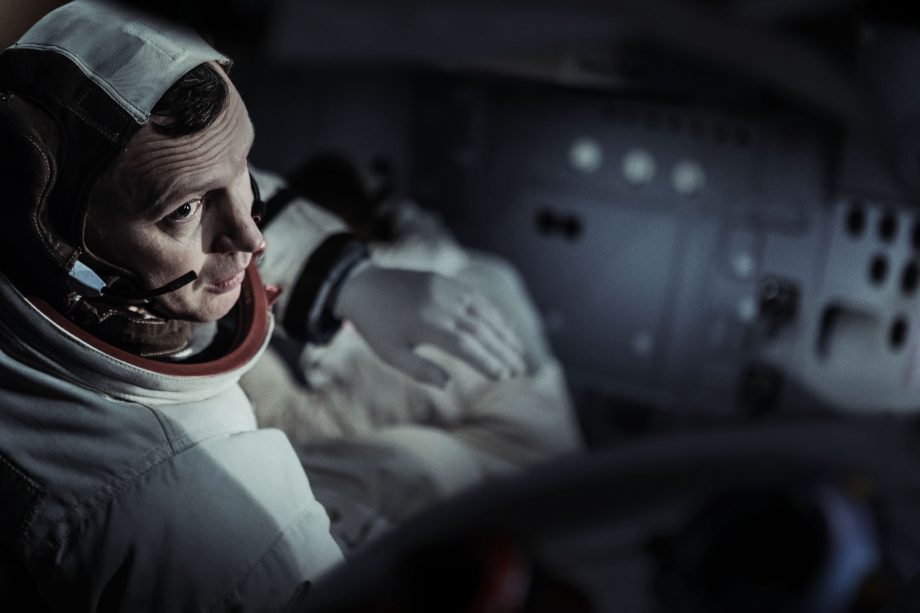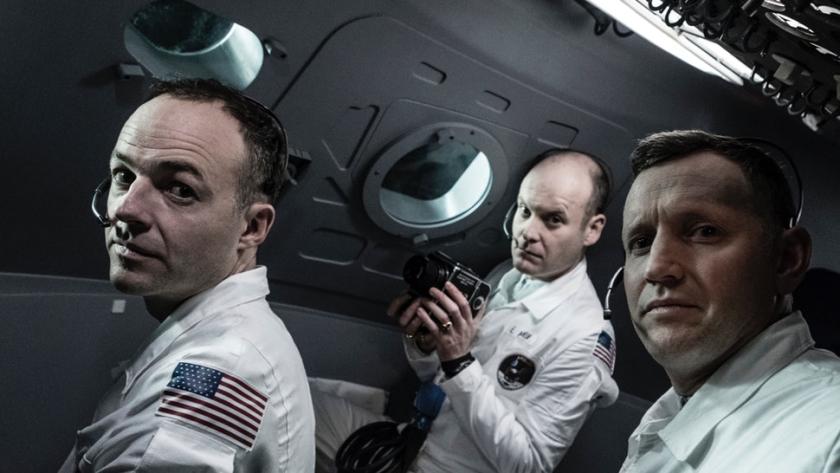The Apollo 11 mission remains the most celebrated journey humanity has ever made. It produced some of our most iconic images, as well as the greatest speech gaffe, and a documentary of epic scale could be made that focused solely on the influence it has had on our popular culture. 8 Days has a different aim, asking the question, “What was it really like for those three astronauts over the course of those eight days?” Using real recordings, archival footage and re-enactments, we are given the inside story of what happened inside the lunar capsules.
Like other recent film productions (including Damien Chazelle’s First Man and Todd Douglas Miller’s Apollo 11), all marking the Apollo mission’s 50-year anniversary, 8 Days follows a clear chronology of events, from the Florida liftoff to the parachuted splashdown landing. The use of regular on-screen text to provide facts and details at every stage makes this the most informative of recent tributes. Miller’s Apollo 11 was more atmospheric and emotive, while Chazelle’s First Man brought in A-list drama. 8 Days fits between the two, employing actors to mime the words to the actual cockpit audio of the astronauts.
 Buried in these now declassified audio files are moments of humour and rich emotion. The astronauts experience the first view of earth from space as an instant of collective awe. Then there is the inkling of guilt from Aldrin when he sees the detached rocket parts, no longer needed after takeoff, float away from the flight capsule. “Junk”, he calls them, a term now common for the detritus subsequent space missions have left in the earth’s orbit. This implies a concern about the value of lunar missions in the face of other global issues, a question never addressed here or in other recent productions. Instead, 8 Days hones in on the felt emotions of the astronauts, like the sighting of the moon’s surface, which draws both joy and fear. It is eerie, entrancing, mesmeric, but also dangerous, with the prevailing risk of a bungled landing the main concern for Armstrong.
Buried in these now declassified audio files are moments of humour and rich emotion. The astronauts experience the first view of earth from space as an instant of collective awe. Then there is the inkling of guilt from Aldrin when he sees the detached rocket parts, no longer needed after takeoff, float away from the flight capsule. “Junk”, he calls them, a term now common for the detritus subsequent space missions have left in the earth’s orbit. This implies a concern about the value of lunar missions in the face of other global issues, a question never addressed here or in other recent productions. Instead, 8 Days hones in on the felt emotions of the astronauts, like the sighting of the moon’s surface, which draws both joy and fear. It is eerie, entrancing, mesmeric, but also dangerous, with the prevailing risk of a bungled landing the main concern for Armstrong.
8 Days is also revealing about the astronauts’ personalities. Buzz Aldrin was the most experienced pilot (and the proudest), having amassed the most time in space. Neil Armstrong was confident and enjoyed being in command, despite having the least experience in the team. At one point he is jokingly called “czar” after he plays some questionable music for too long (It is amusing, and strangely comforting, to see the same kinds of social politics arise as would on a long road trip). Then there’s Mike Collins: reserved, modest, but sociable. He is someone who would rather talk about “books, wine or roses” than the intricacies of the mission.
8 Days is unique in the way it combines documentary and drama often to thrilling effect. It stands out as a record of the astronauts’ emotional experience, and the first to offer a glimpse at their unique identities. Absorbing and edifying, it is a worthy tribute.















Add comment